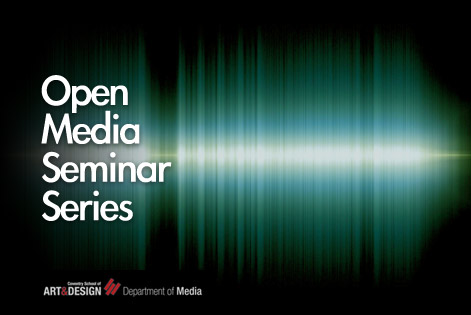Digital Media have today become ubiquitous and all pervasive. Our lives and experiences are being mediated non-stop by a host of mobile and web-based devices which offer the possibility of merging, mixing, and mashing-up texts, images, sound and other data formats. In the digital age we are no longer confined by the boundaries that once governed traditional media. Notions of authorship, expertise, authority, stability, ownership and control from above are all being challenged by the prosuming multi-user and crowd-sourced use of borderless multimedia applications. People can produce and publish their own books via Lulu.com, promote their art on online gallery sites, and advertise their music via Myspace and Youtube. They can educate themselves via iTunesU, call friends abroad for free via Skype, connect and update the world via Facebook and Twitter, and fund projects via Kickstarter.
These developments have led many to claim that the web and digital media offer unprecedented democratizing possibilities for media producers, consumers and critics. However, reality is of course more complicated than that. A lot of (public and tax-funded) media are still behind pay-walls. Our private data are hosted and distributed by commercial social media platforms. Blogs are still not taken seriously in the academic world. Google is digitizing our books. Many makers of music mash-ups are being sued for copyright infringement and fears regarding ebook piracy continue to rule the literary world.
The concept of openness is often employed as part of a radical critique of the closed-off worlds of what might be called ‘traditional media’. It is variously used to urge for the right to transparency, the ethics of sharing, the value of re-use and the benefits of connecting. But openness also has its drawbacks. If cultural products are freely available, who then pays the producers of those products? Does open data pose security risks? And who gets to control the data? Who governs our creative outputs? In what way can we control and keep a check on the media we use? Is there still a place for authority and expertise in open media, or are these notions being explicitly challenged? In what ways can media be open, and can they ever really be truly open? What are the limits of openness? Where does openness end? Or should we perhaps just focus on degrees and aspects of openness? How can we compose a media critique when media – including our critique itself – are constantly in the process of being upgraded, updated, merged, mixed and changed?
This series of research seminars will explore various aspects of openness. Special attention will be given to the benefits and drawbacks of openness, and to the many possibilities openness offers for the future of media production, use and critique.
Coventry Open Media Seminar Series is curated by Janneke Adema who is currently undertaking a PhD in Media & Communication at Coventry University.
